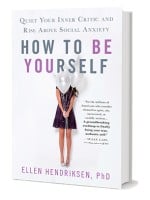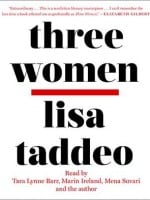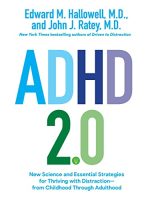You Are Why You Eat Audiobook by Dr. Ramani Durvasula
“You Are Why You Eat” by Dr. Ramani Durvasula is an enlightening exploration into the psychological factors influencing our eating habits narrated by Jane Jacobs. This audiobook invites listeners to reflect on childhood influences and emotional triggers that shape their relationship with food while offering practical strategies for achieving healthier habits. Available for free listening at Ezaudiobookforsoul.com.
As I strolled through the vibrant streets of my city one crisp autumn evening, the air filled with the scent of fallen leaves and spiced lattes, I decided to dive deep into a world that had long intrigued me: the emotional intricacies of our eating habits. Armed with my headphones and a steaming cup in hand, I pressed play on “You Are Why You Eat” by Dr. Ramani Durvasula, narrated by the soothing voice of Jane Jacobs. Little did I know that this audiobook would unravel not just the mysteries of food but also those tangled threads of my own relationship with it.
From the very first chapter, Dr. Durvasula’s warm yet assertive tone drew me in. She spoke directly to my heart, inviting me to reflect on how childhood experiences shaped my current eating behaviors. I recalled family dinners where clean plates were a badge of honor, and dessert was a rare reward—a sweet victory after enduring broccoli. This reflection sparked an epiphany: my lifelong struggle with food wasn’t merely about hunger or cravings; it was about unearthing buried emotions tied to those early memories.
The concept of “Stakeholders” struck a profound chord within me. Dr. Durvasula explained how certain figures in our lives—be they family members, friends, or societal expectations—can influence our eating behaviors and self-perception. As I walked past cozy cafes bustling with laughter and chatter, I pondered who my Stakeholders were. Was it the well-meaning friend who always encouraged indulgent treats? Or perhaps the media’s relentless pursuit of an ideal body image? Identifying these influences felt liberating yet daunting; it opened up a path toward reclaiming agency over my choices.
One particularly resonant moment came when she delved into emotional triggers—those pesky feelings that often lead us to seek solace at the bottom of a bag of chips or pint of ice cream. Dr. Durvasula’s insights on stress and comfort eating mirrored my own experiences during stressful workdays. Instead of viewing these moments as failures, she reframed them as opportunities for growth and self-awareness. Her practical strategies for recognizing and managing these triggers felt like a gentle hand guiding me toward healthier habits.
As Jane Jacobs narrated Dr. Durvasula’s words, her voice became an anchor amidst the swirling thoughts in my mind. The combination of expert advice delivered in such an engaging manner made every lesson feel accessible yet profound. It was as if I could hear Dr. Durvasula sitting beside me in that café, sharing her wisdom over warm mugs filled with tea.
Towards the end of the audiobook, Dr. Durvasula emphasizes self-regulation—not as a means to restrict oneself but as a way to foster an authentic relationship with food. This notion resonated deeply within me; it transformed my perspective from one of guilt and shame to empowerment and understanding. With every chapter, I felt more equipped to set realistic goals for myself instead of succumbing to fleeting trends or restrictive diets.
As I reached the closing remarks—sipping my now lukewarm latte—I realized that “You Are Why You Eat” isn’t merely an audiobook about food; it’s a journey toward self-discovery and healing. It’s about embracing our complexities while nurturing our bodies and minds holistically.
In conclusion, if you’re seeking clarity on your eating habits through a psychological lens while also yearning for personal growth, this audiobook is a treasure trove waiting for you to explore it. Whether you’re walking down bustling streets or curled up at home, let Dr. Ramani Durvasula guide you toward understanding why you eat—and ultimately help you forge a healthier relationship with food.
| Author | |
|---|---|
| Narrator | |
| Language |
- Soulful_ExplorationYou Are Why You Eat Audiobook
- 01You Are Why You Eat Audiobook
- 02You Are Why You Eat Audiobook
- 03You Are Why You Eat Audiobook
- 04You Are Why You Eat Audiobook
- 05You Are Why You Eat Audiobook
- 06You Are Why You Eat Audiobook
- 07You Are Why You Eat Audiobook
- 08You Are Why You Eat Audiobook
- 09You Are Why You Eat Audiobook
- 10You Are Why You Eat Audiobook
- 11You Are Why You Eat Audiobook
- 12You Are Why You Eat Audiobook












